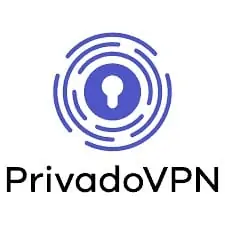 The number of smaller VPN providers that exist today is close to impossible to count. Most of them aren’t very good, so we wanted to know if PrivadoVPN was any different. PrivadoVPN is a relatively new provider in the commercial VPN space. The service was founded in 2019 and is based in Switzerland. From its marketing, it appears to be more focused on privacy and security than on anything else. But, of course, a company’s marketing only tells part of the story.
The number of smaller VPN providers that exist today is close to impossible to count. Most of them aren’t very good, so we wanted to know if PrivadoVPN was any different. PrivadoVPN is a relatively new provider in the commercial VPN space. The service was founded in 2019 and is based in Switzerland. From its marketing, it appears to be more focused on privacy and security than on anything else. But, of course, a company’s marketing only tells part of the story.
So not knowing that much about PrivadoVPN going into this review, I wanted to make sure to answer the following questions:
- How fast is PrivadoVPN?
- Is it as safe and private as its marketing states?
- Can PrivadoVPN access streaming sites like Netflix and Amazon Prime Video?
- Does PrivadoVPN work in China?
- What’s its customer service like?
Those questions and more are answered in this review. If you want to get all of the details, I would recommend reading the full review. However, if you don’t have the time right now, you can look at my summary below.
You can read more on the criteria I used to test Anonymous VPN and our wider VPN testing methodology.
PrivadoVPN summary
Privado is a Swiss-based VPN provider. It appears to focus on privacy and security and, as such, has an excellent privacy policy. Privado still collects some user data but less than many of its competitors. The VPN protocols it supports are OpenVPN and IKEv2, both of which are deemed very secure. But it would have been nice if PrivadoVPN also supported WireGuard. The service also provides you with good speeds, and its client apps are decent and easy to use.
However, its website isn’t very informative, and its customer support, while timely, doesn’t always answer your questions (more on that in the Support section). Its website is also rather uninformative. As far as streaming is concerned, it worked with some sites but not that many. PrivadoVPN very much feels like a middle-of-the-road VPN provider. Not bad at all, but not great when compared to what the competition offers. So while you could easily do much worse than signing up to PrivadoVPN, you could just as easily do better…
PrivadoVPN Key data
| OVERALL RANK: #14 of 72 | |
|---|---|
| Speed | Score: 8 |
| Average Speed*: | 51.7 Mbps |
| Video Streaming Support: | 4K UHD |
| Streaming | Score: 6 |
| Netflix: | Yes |
| Other Streaming Services: | Amazon Prime Video |
| Security | Score: 8 |
| Encryption Type: | 256-bit AES |
| Kill Switch: | Yes |
| Log Policy: | No-logging |
| Protocols: | OpenVPN, IKEv2 |
| Value for Money | Score: 6 |
| Lowest Monthly Cost: | $4.99 |
| Money Back Guarantee: | 30-day money-back guarantee |
| Website | https://privadovpn.com |
How does PrivadoVPN compare to other popular VPNs?
| No value | PrivadoVPN | NordVPN | Surfshark |
|---|---|---|---|
| Website | https://privadovpn.com | NordVPN.com | Surfshark.com | Average Speed (Mbps) | 100+ Mbps | 300 Mbps | 100+ Mbps | OpenVPN data encryption | 256-bit AES | 256-bit AES | 256-bit AES | Kill Switch | only available in Desktop apps | Allows Torrenting | Connection logs | some information | Effectively none | Unblocks Netflix US | Unblocks Prime Video | Unblocks Hulu | Unblocks BBC iPlayer | Lowest monthly cost | $1.99 per month | $3.09 | $2.29 | Money back guarantee | 30 days | 30 days | 30 days | Overall rating | 6.5 | 9.7 | 9.6 |
| Best deal (per month) | $1.99 SAVE 82% on the 24 month plan | $3.09 Up to 69% off + 3 months FREE | $2.29 Save 85% on a 2 year Starter plan |
PrivadoVPN pros and cons
Pros:
- Nice client apps
- Good speeds
- Kill switch
- Good privacy & logging policy
- Physical servers
- Decent streaming performance
- Secure VPN protocols
Cons:
- Customer support could be better
- PrivadoVPN does not know if its own service works in China
- Uninformative website
- No WireGuard support
- Kill switch only available in Desktop apps
- Prices are too high
Speed: Is PrivadoVPN fast?
PrivadoVPN actually impressed me on speed. Not that it’s the fastest VPN I’ve seen, but it nonetheless fared very well in my testing. Across all times and locations tested, PrivadoVPN scored an average speed of: 51.7 Mbps.
I conducted the tests over servers located in North America, Asia, and Europe. And unless you have a very high-speed internet connection or that you’re connected to a server that is very far away from your actual location, you probably wouldn’t feel a slowdown while browsing the web.
Here are the average speeds for servers in each region I tested:
- North America (where I am located): 105.6 Mbps
- Asia: 11 Mbps
- Europe: 38 Mbps
I used the OpenVPN protocol over UDP to conduct my tests. I could have used TCP, as Privado’s app enables its users to choose, but TCP is much slower than UDP. However, IKEv2 (IPsec) is apparently faster than OpenVPN. Had I used that protocol, perhaps the speeds would have been even better. For consistency with our other tests, I stuck with OpenVPN. It would have been nice to use WireGuard, but PrivadoVPN does not yet support the protocol.
I also tested PrivadoVPN with online gaming. Because ping times are important when gaming online, I made sure to connect to a nearby server and everything went very well. I didn’t feel any slowdown. And I didn’t experience any lag or any freeze-ups. I wasn’t really surprised because I already knew its speeds were good.
See also: Fastest VPNs
Apps & Devices
PrivadoVPN provides its users with native apps for the following platforms:
- Windows
- Android
- macOS
- iOS
- Fire TV
- Android TV
That’s not bad. All of the most popular platforms are there, plus we get Fire TV and Android TV. However, Privado also supports Linux – even though it doesn’t advertise it in its marketing. But there’s no native app. To use Linux, you’ll need to create a manual OpenVPN connection using the Network Manager. Privado provides detailed instructions on how to do this in its Support section.
The mobile version of the app looks very similar. Here’s what the iOS version looks like.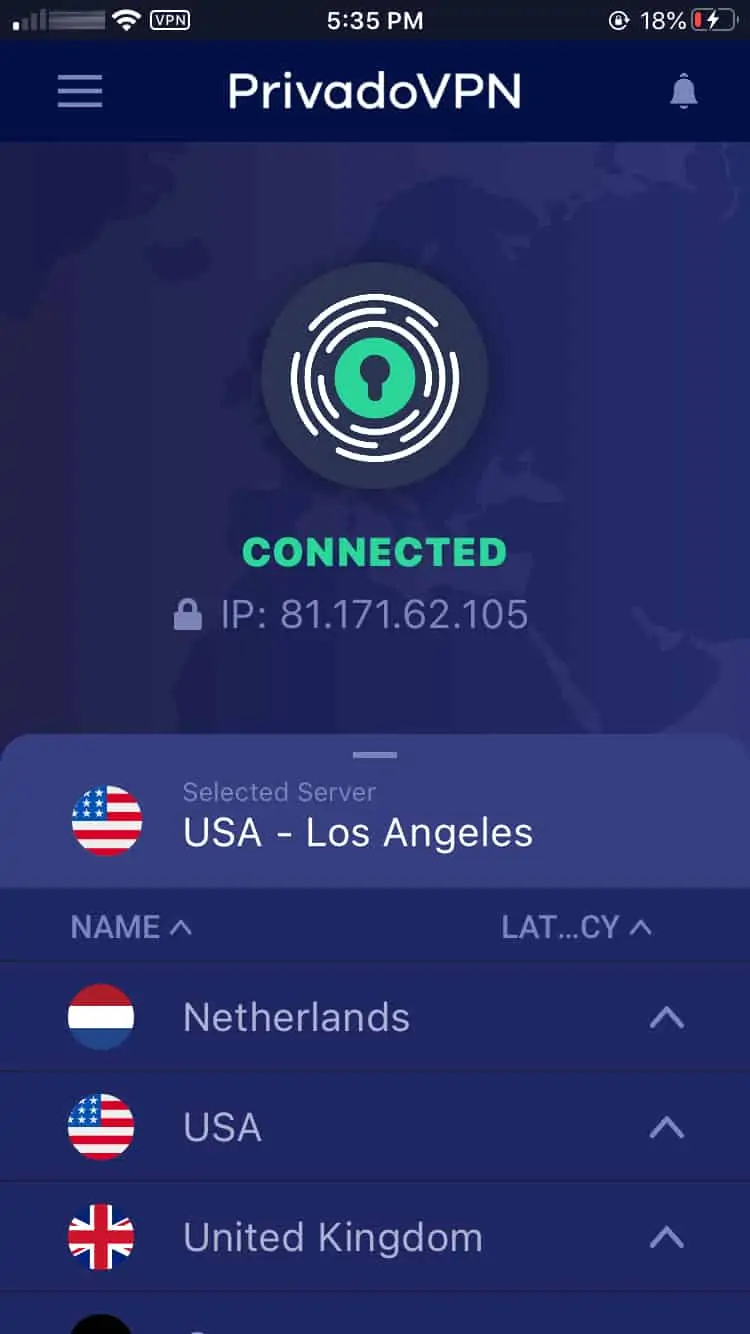
The Windows client is simple, straightforward, and easy to use – which is welcome. You can access the Settings menu by clicking on the three horizontal lines at the top left of the app.
Clicking on Preferences brings up the Preferences menu, which is divided into five sections.
General
The General page allows you to enable/disable the kill switch and to configure the app’s behavior at bootup (auto-start) and when launched (auto-connect).
Unfortunately, the kill switch is not available on mobile.
Protocol
This is where you select the VPN protocol you want to use. Your options are OpenVPN and IKEv2. It’s unclear what the Automatic setting does beyond choosing a protocol for you. The criteria used to select one over the other are unknown.
When you select OpenVPN, you can choose between UDP and TCP, which can be practical if you’re trying to connect over a restricted network. Using TCP may enable you to get through.
GUI
This section enables you to select whether or not you want the app window to be pinned to the bottom right or be “free-flow.”
Account
The account section displays your username and your subscription details.
Support
The Support section lets you enable/disable the sending of crash logs to Privado (it’s enabled by default) and displays application logs. You can also manually check for updates to the client app from here.
All in all, Privado did a good job with its official client.
Router support
Though it doesn’t really advertise router support in its marketing, Privado does support some routers. As is the case with Linux, you need to go through its Support section to find out which ones, and Privado provides detailed guides on how to configure each one.
Officially, Privado only supports the following routers:
- DD-WRT
- pfSense
However, once you have the OpenVPN configuration file for the server you want to connect to, if you know what you’re doing, you should be able to configure an OpenVPN connection on pretty much any OpenVPN-capable router.
If you’re looking for more information on setting up a VPN connection on a router, have a look at our guide on VPN routers.
Streaming and Netflix
PrivadoVPN prominently mentions streaming in its marketing. And it does work… on some streaming sites.
Using PrivadoVPN, I was able to access Netflix US, France, and Germany. But I wasn’t able to access Netflix UK. Amazon Prime Video worked fine. But no Hulu, no Disney+, and no BBC iPlayer.
The nature of the game with VPNs and streaming sites is that anything goes. What I mean by that is that while a particular server will work with a particular service on one day, it may no longer work the next day, and you’ll need to hunt down a server that is able to access the streaming service you’re looking for.
So, while VPN providers generally manage to provide regular access to more streaming sites than Privado, I still feel that this is fair performance regarding streaming.
You can take a look at our recommended VPNs for streaming.
Torrenting
PrivadoVPN supports torrenting – in more ways than one.
In using PrivadoVPN VPN during my P2P testing, everything was fine. Good speeds. No lagging. No losing connections to peers. It was all good.
However, PrivadoVPN also provides a SOCKS5 proxy for torrenting. While a VPN protects all of your network traffic, the SOCKS5 proxy will only proxy the traffic from the application with the proxy configuration. However, the proxy will very likely be faster than the VPN because it doesn’t encrypt your traffic. It will, however, change your IP address to that of the proxy server. That being said, you also have the option of using both at the same time.
So you can use either just the VPN, just use the SOCKS5 proxy server, or you can use both. Good stuff.
You can also check out our recommended VPNs for torrenting.
Does PrivadoVPN support split tunneling?
Sadly, it does not.
Split tunneling is a feature that allows you to choose the gateway through which your traffic passes on an app-by-app basis. That means that you can, for example, decide to send your Netflix traffic through your ISP gateway and the rest of your traffic through the VPN. Or send just a few apps through the VPN, say your torrent client and your web browser, while sending the rest through your ISP.
Split tunneling is quite flexible and can accommodate pretty much any scenario you can come up with. We hope to see Privado support the feature in the future.
If split tunneling is important to you, have a look at our recommended VPN for split tunneling.
Security, privacy, and logging
Security and privacy are the main reasons VPNs exist in the first place. Hence, every VPN provider out there will claim to be secure and private, regardless of the actual case. So when reviewing a VPN provider, it’s critical to dig through its privacy policy to assess its claims.
The first thing we find when looking at PrivadoVPN’s privacy policy is this:
That’s good to hear. This is PrivadoVPN’s logging policy. And we like what we see. But typically, the privacy policy goes into more detail, and things are less clear-cut. So looking through the actual privacy policy, we find the following:
So PrivadoVPN collects:
- Email addresses
- Payment information
- App analytics
- Mobile identifiers
This isn’t bad. And while I’d like to see the app analytics disappear, this is still far less data than many other VPN providers.
As far as encryption is concerned, because PrivadoVPN’s website is not very informative, I had to dig through its router setup guides to get the information. PrivadoVPN uses AES-256 bit encryption and SHA256 hash authentication. I also emailed its Support department, asking for more details on the encryption used. And while my email was answered, that question was not (more on that later).
Moving on to IP and DNS leaks, I’m happy to report that all is well. I didn’t experience any IP or DNS leaks at all when connected to PrivadoVPN.
IP Test – Without VPN
IP Test – With VPN
DNS Test – Without VPN
DNS Test – With VPN
Servers
PrivadoVPN provides its users with a network comprising hundreds of servers in 45 countries and 53 cities. I know that many VPN providers have huge networks with thousands upon thousands of servers. While that’s all fine and good, I prefer it when VPN providers have smaller networks, as it gives me the impression more care goes into the configuration of each one.
In Privado’s case, I think we have a middle-of-the-road situation. It’s not a small network, and it’s not huge either. There are more than enough servers for the vast majority of VPN users.
Another point worth mentioning is that PrivadoVPN prides itself on the fact that it only uses physical servers located in the jurisdiction they represent. This is opposed to using virtual servers, which can be anywhere in the world and simply provide you with an IP address of the given country. While virtual servers have their advantages, like easier maintenance and better scaling, I prefer it when the VPN server I’m connected to is actually located in the jurisdiction it claims to be.
You can somewhat verify this by running ping tests. If you’re in North America and you get very low latency when pinging a VPN server in Asia, there’s a good chance you just pinged a virtual server.
Does PrivadoVPN work in China?
That was another question I put to PrivadoVPN’s Support department. And the reply I got was somewhat surprising. The Support rep told me that they didn’t know if the service worked in China or not and that they had no way of testing it…
So while that leaves the door open to it working, I wouldn’t bet my bottom dollar on it.
If you need to connect from China, check out our in-depth article on which VPN providers actually work in China.
How is PrivadoVPN’s customer service?
PrivadoVPN’s customer service comes in the form of an email ticketing system. And while I received a timely response, the response itself wasn’t very helpful.
I had asked its Support department two questions:
- What are the encryption specifications?
- Does the service work in China?
The rep ignored my first question altogether and didn’t know the answer to the second question. So while I appreciate the prompt reply, it was of little help. So I’m afraid PrivadoVPN’s support isn’t very good.
Privado Pricing
PrivadoVPN offers two subscriptions and a free tier.
The free account will give you 10GB every 30 days. You get access to 12 of PrivadoVPN’s servers for a single device. That’s not bad at all if you want to try the service out with zero commitment. Using up to 10 GB over the VPN will give you a good idea of whether or not you wish to move up to a paid plan.
The two paid subscriptions are:
- Monthly: $7.99
- Yearly: $59.88 – works out to $4.99 per month
Both paid subscriptions include the same features: access to all servers, up to 10 simultaneous connections, and the SOCKS5 proxy. Both paid plans also come with a 30-day money-back guarantee.
As is typically the case with smaller VPN providers, PrivadoVPN charges too much for its service. You can sign up for a premium VPN provider for less.
Do I recommend PrivadoVPN?
I can’t recommend the service, per se, because any one of the VPN providers below will be better for you on either price, security, or features. But that’s not to say that PrivadoVPN is inherently bad. It’s not. In fact, despite a few peeves here and there, it’s actually quite good. I would say it’s one of the best “smaller” players I’ve seen.
It provides good speeds and indeed has an excellent privacy policy. PrivadoVPN also supports secure VPN protocols (OpenVPN, IKEv2). It also thoughtfully designed its apps, which include a kill switch. PrivadoVPN also didn’t suffer any IP or DNS leaks. It also provides decent streaming performance.
On the downside, its website is uninformative. Its customer support, while timely, isn’t particularly helpful. PrivadoVPN also doesn’t support WireGuard, which is quickly becoming the go-to VPN protocol. And Privado charges too much for its paid plans – especially its monthly plan.
So while I can’t give it an explicit recommendation, it’s only because of the state of the competition. You could do much worse than PrivadoVPN. So I’ll say that PrivadoVPN is still worth trying.
PrivadoVPN alternatives
NordVPN
NordVPN is a very well-known Panama-based VPN provider. It provides a large number of features for security, privacy, and convenience. In terms of security, it includes ad-blocking, DNS leak protection, robust encryption, and a VPN kill switch. A strict no-logging policy, a strict privacy policy, and support for anonymous payments have you covered for privacy. Dedicated P2P servers, native apps for every major platform, and up to six simultaneous connections (or more with a VPN router) make NordVPN a very user-friendly service.
Surfshark
This is one of the cheapest VPN services I’ve seen, with subscriptions starting at only $1.99/month. Surfashark supports secure VPN protocols and performs exceptionally well on most streaming sites. It adheres to a strict no-logging policy, and the service also works in China. On top of that, Surfshark allows an unlimited number of simultaneous connections. It also recently updated all of its servers to run from RAM. Worth checking out.
ExpressVPN
ExpressVPN is one of the more prominent players in the commercial VPN market and benefits from an excellent reputation. Its privacy and security practices are outstanding. All of its VPN servers run from volatile memory (RAM) and are booted from read-only disks. This setup pretty much guarantees that no remnant data (logs) can exist on the system’s hard drives, which is a boon for user privacy. ExpressVPN may be a little more expensive than most providers out there, but it’s fast, secure, unblocks streaming sites, and works in China.
VPN testing Methodology
Below you’ll find the criteria used to assess the VPNs we review. We really need to be consistent across the board so that our reviews are reasonably objective and that we’re not comparing apples to oranges. For that reason, we want to expose our criteria.
- Speed – Speed is always going to be a huge factor when assessing a VPN. Not only are they frustrating, but slow speeds can prevent you from streaming or even browsing the web. To make sure we address this issue, all of our recommended VPNs scored very high in our most recent speed tests.
- Apps & ease of use – More people than ever are using VPNs today. So app design is as critical as its functionality. We look at the client apps’ UI, the features they provide, the supported operating systems, and their complexity.
- Streaming services – Accessing streaming sites over VPN is becoming rather tricky. But many VPN providers claim to work with streaming sites – with varying degrees of success. We test VPNs against a range of popular streaming services, including Netflix, Amazon Prime Video, BBC iPlayer, HBO Max, Disney+, Hulu, and more, before recommending a VPN provider for streaming.
- Torrenting – P2P file-sharing over VPN is very popular. But not all VPN providers treat torrenting the same way. Some providers disallow it altogether, while others go as far as providing dedicated P2P servers. We look at each VPN’s policy around torrenting and run tests on those that do to see how well they handle file-sharing.
- Security & privacy – Security and privacy are the main reasons VPNs exist, so this needs to be scrutinized in-depth. What is the provider’s privacy policy like? How is its logging policy? Which encryption protocols does the VPN support? Does it use robust ciphers? Does it support Perfect Forward Secrecy (PFS)? Is it vulnerable to IP or DNS leaks? These are all critical questions, and we provide answers to all of them when assessing VPNs’ privacy and security practices.
The above represents a high-level view of our methodology. If you’d like more details, have a look at our full VPN testing methodology. This data-driven approach helps us better understand the services to recommend the right VPN to the right users.
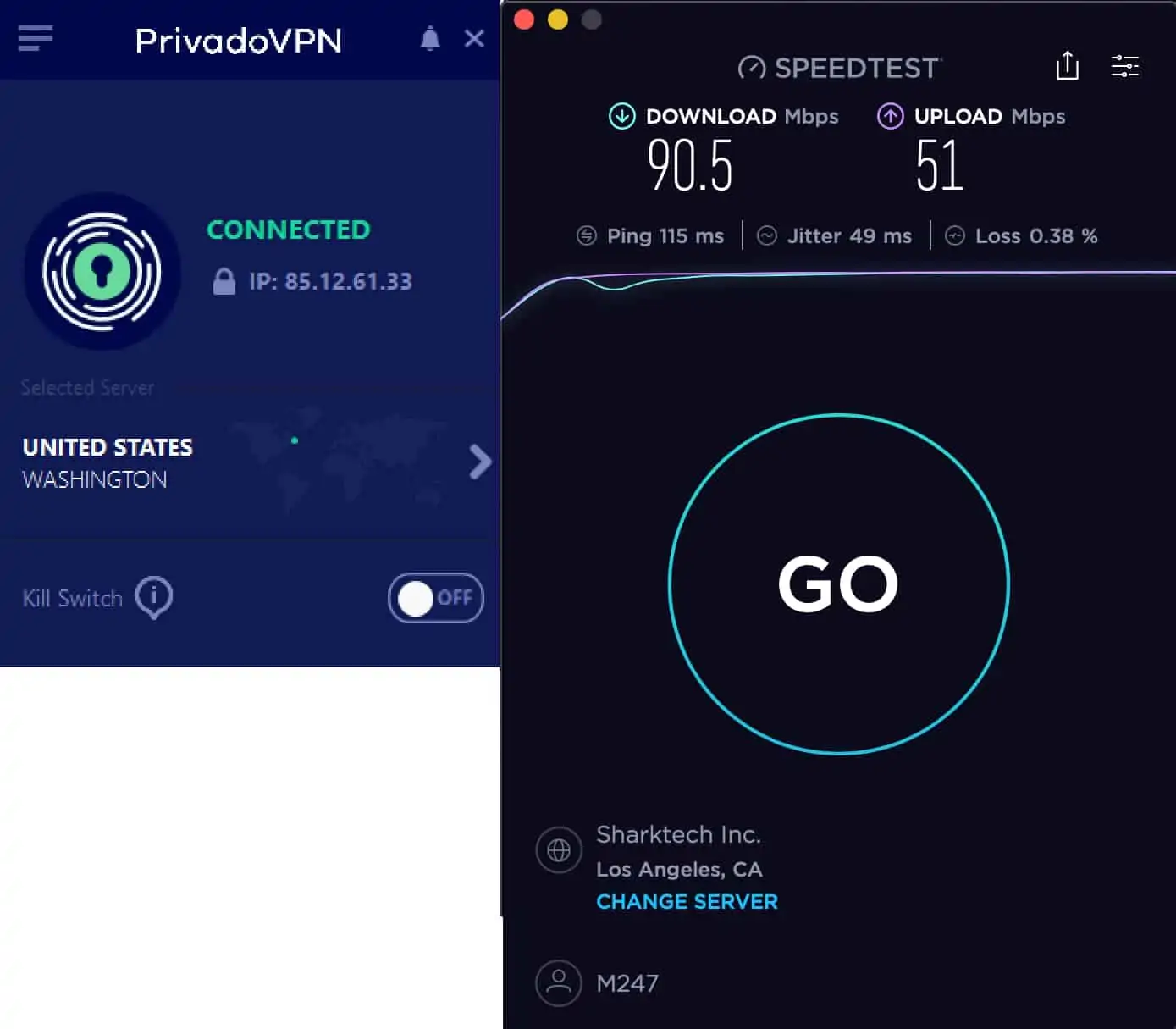

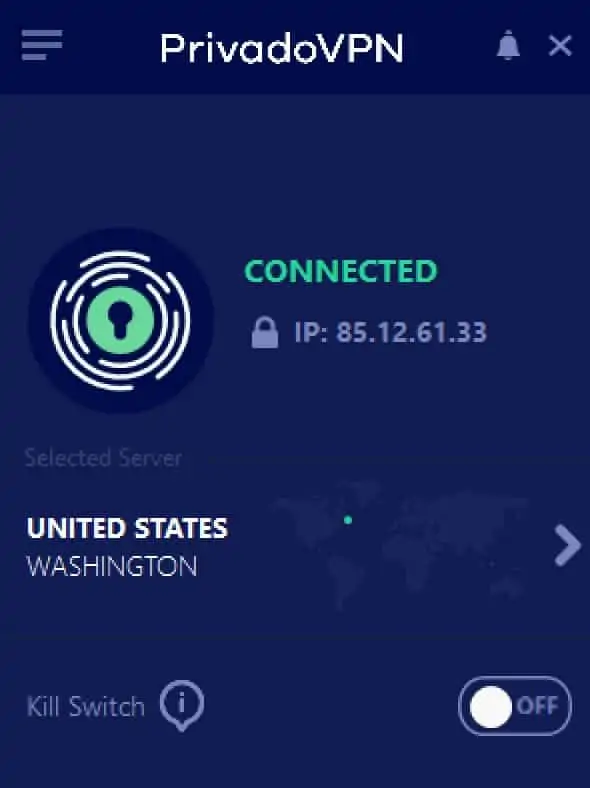

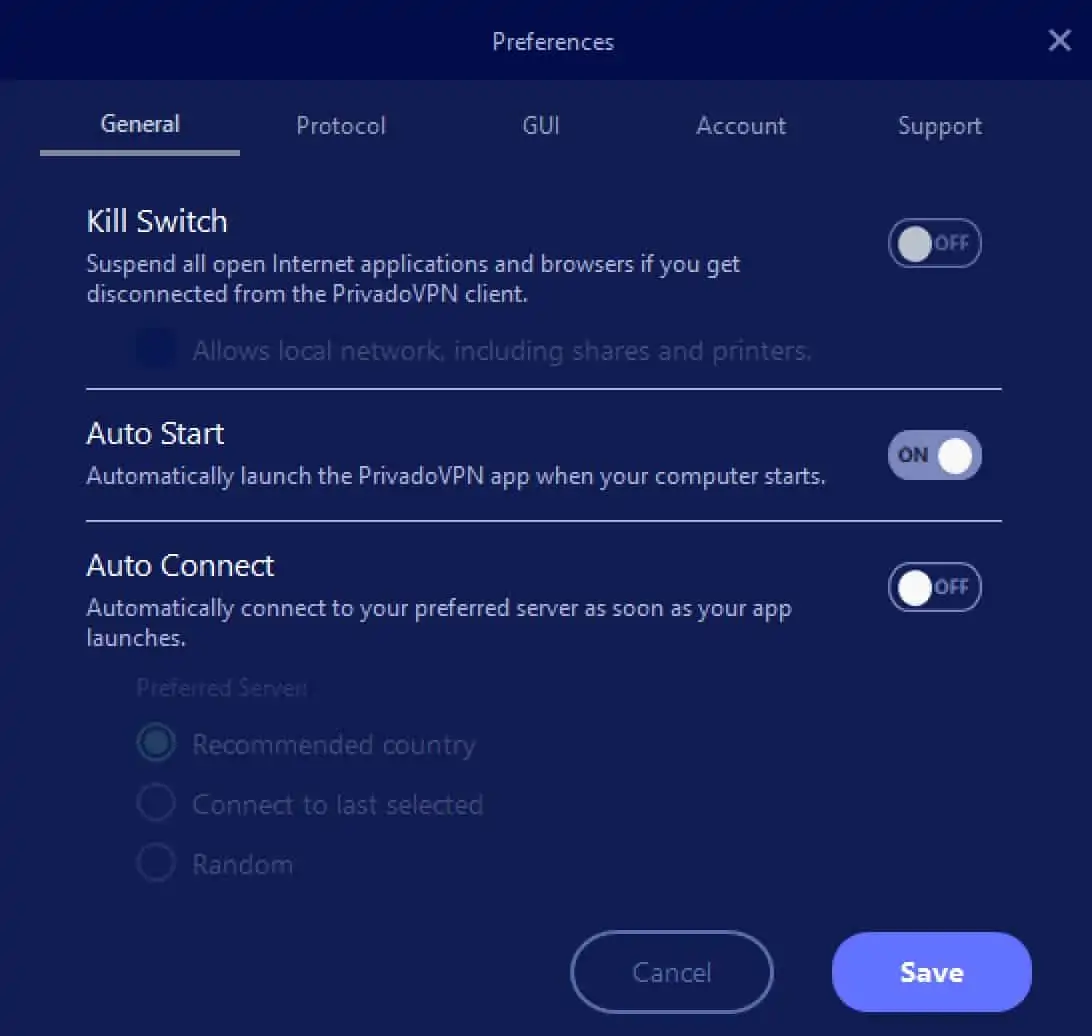
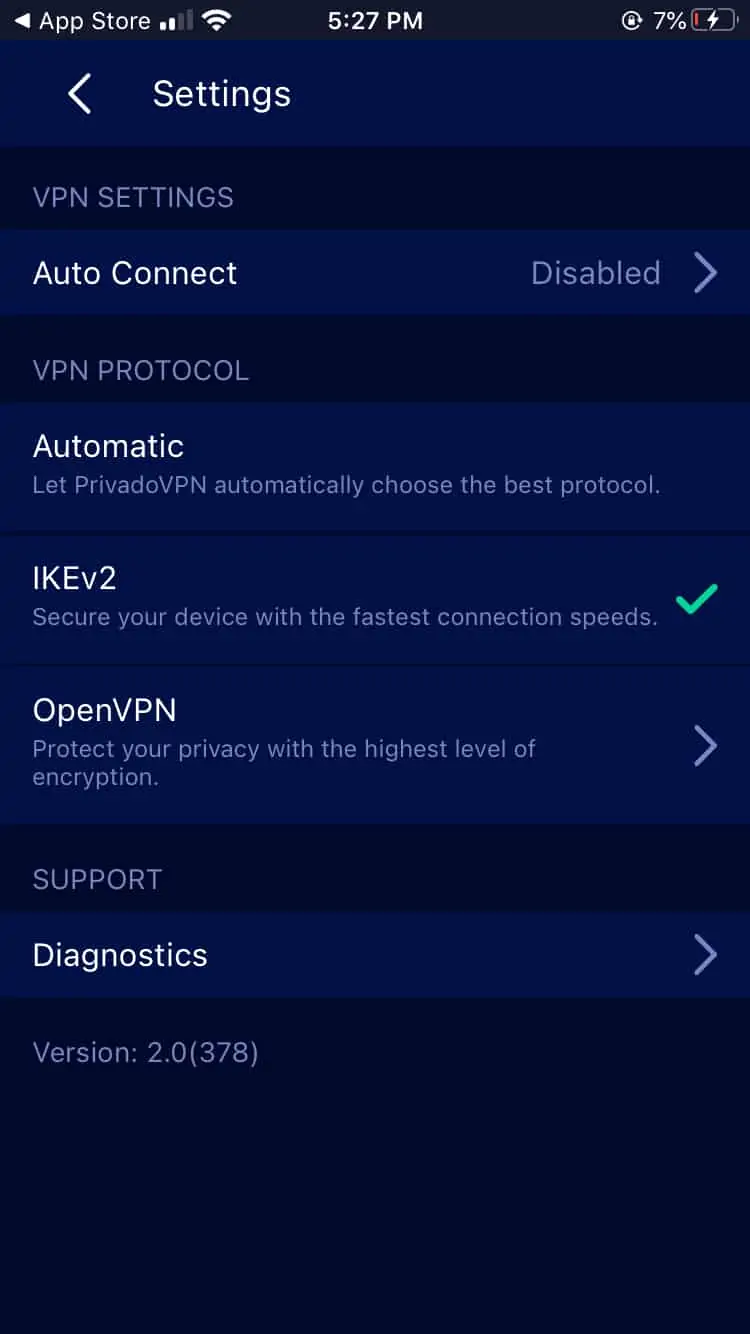
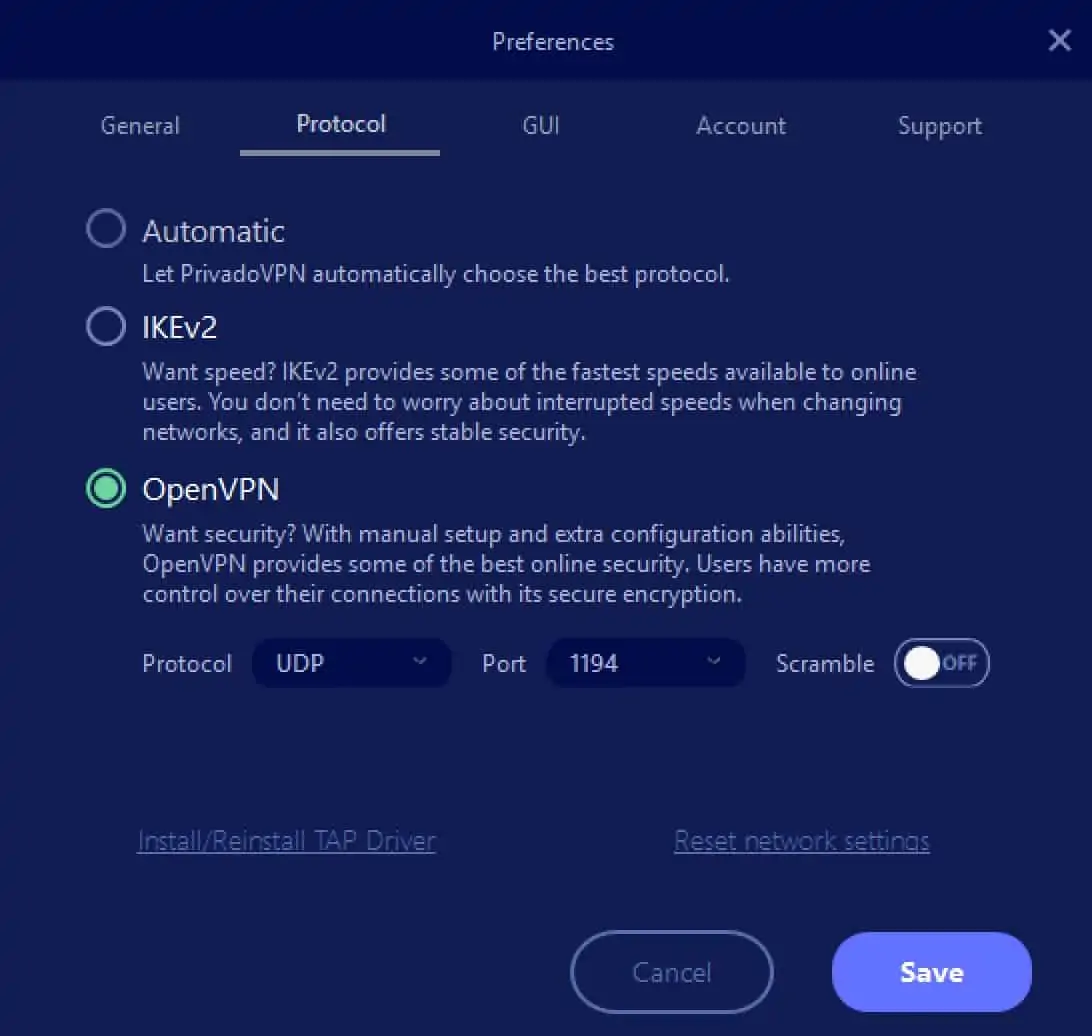
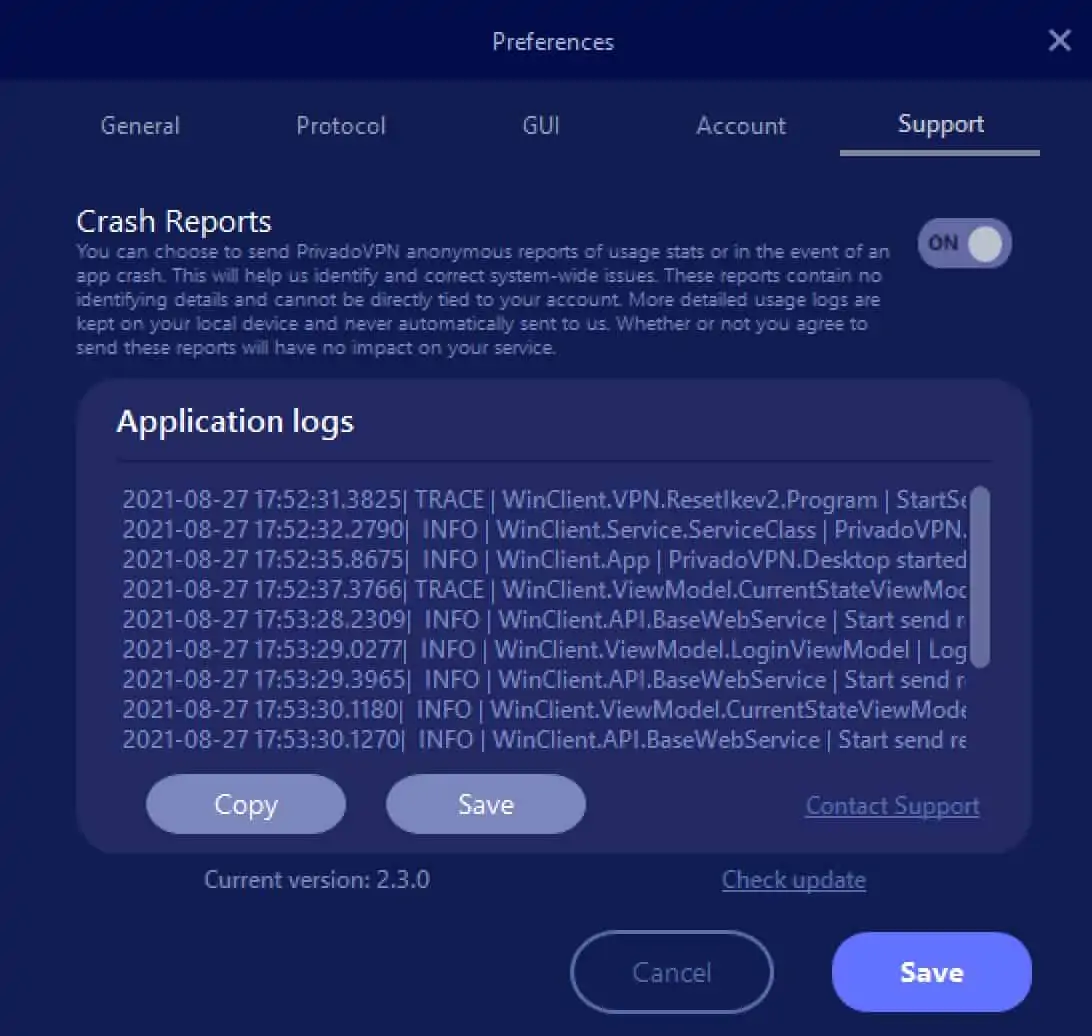

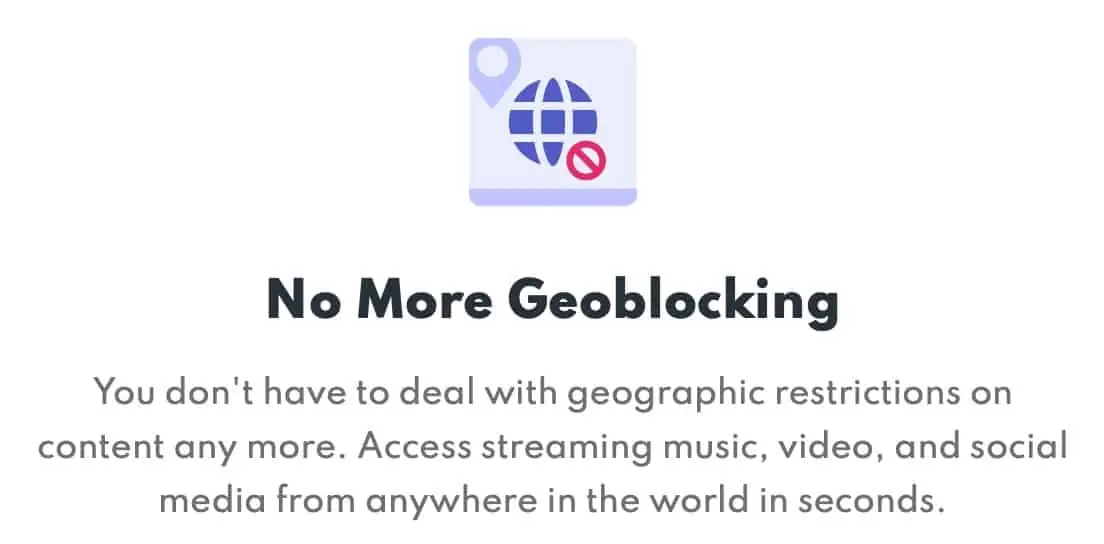
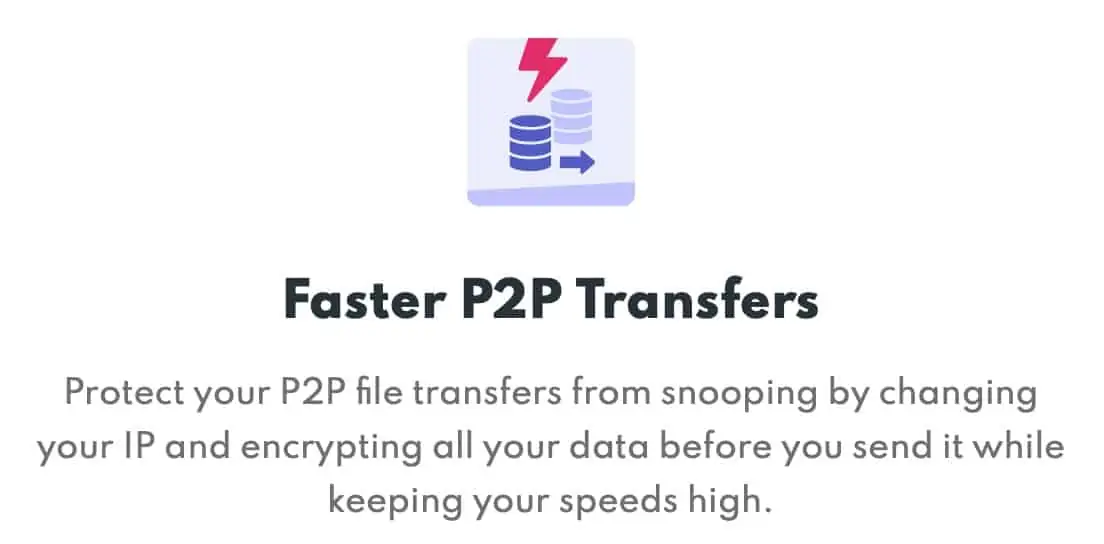
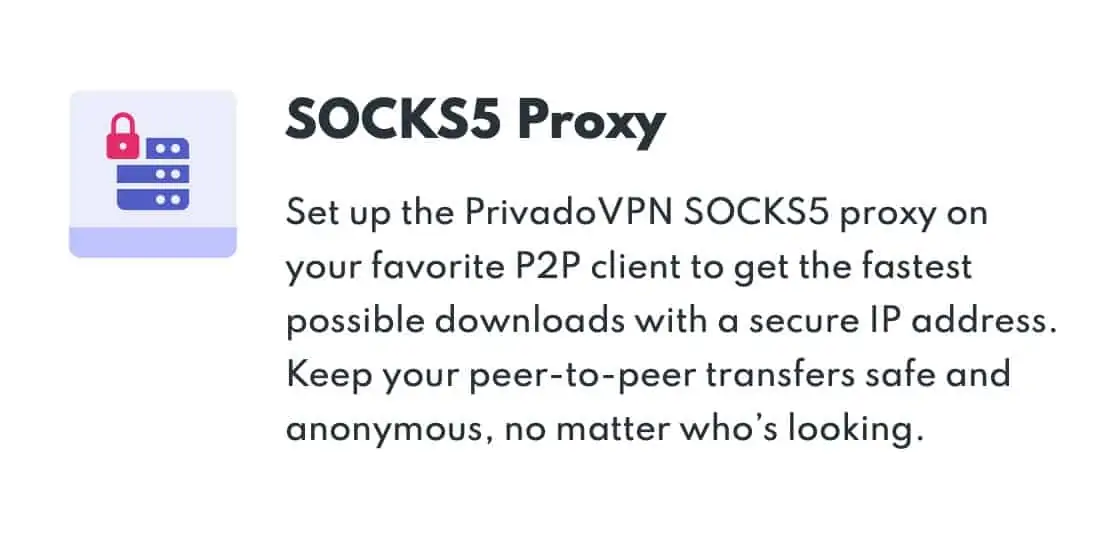
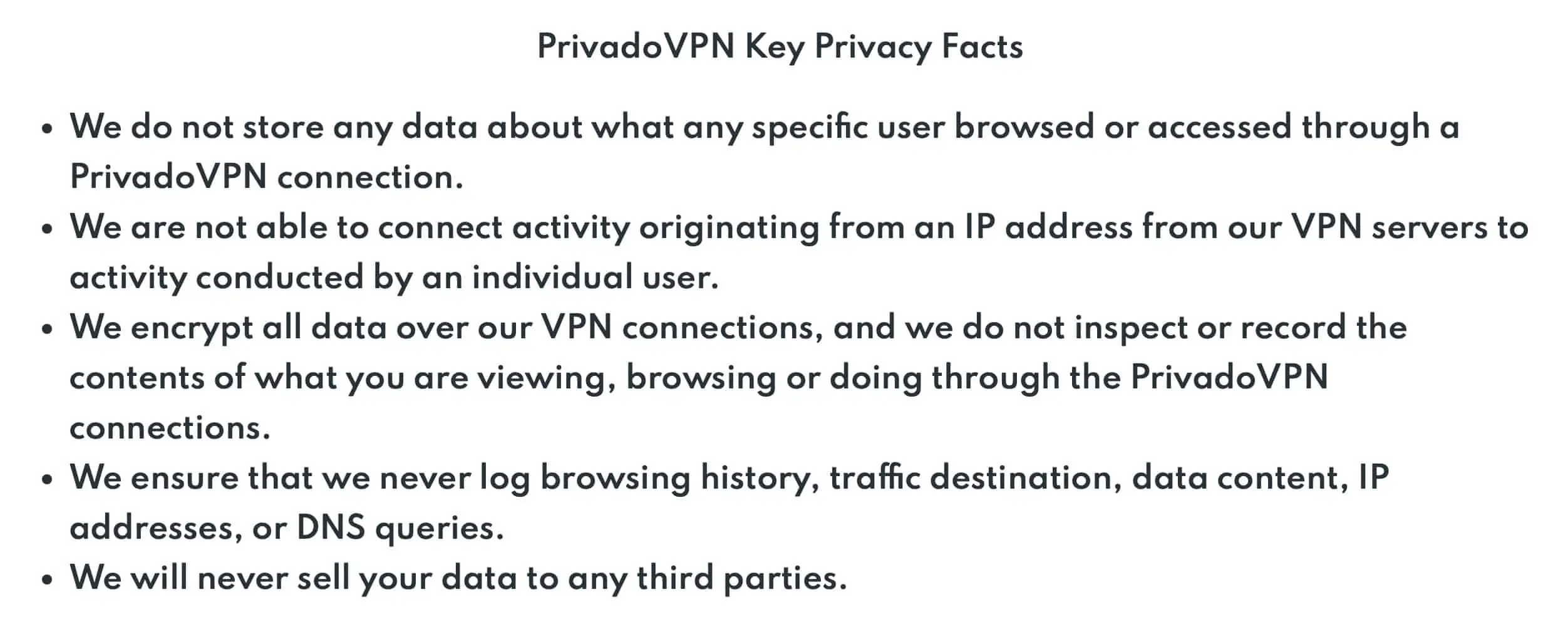
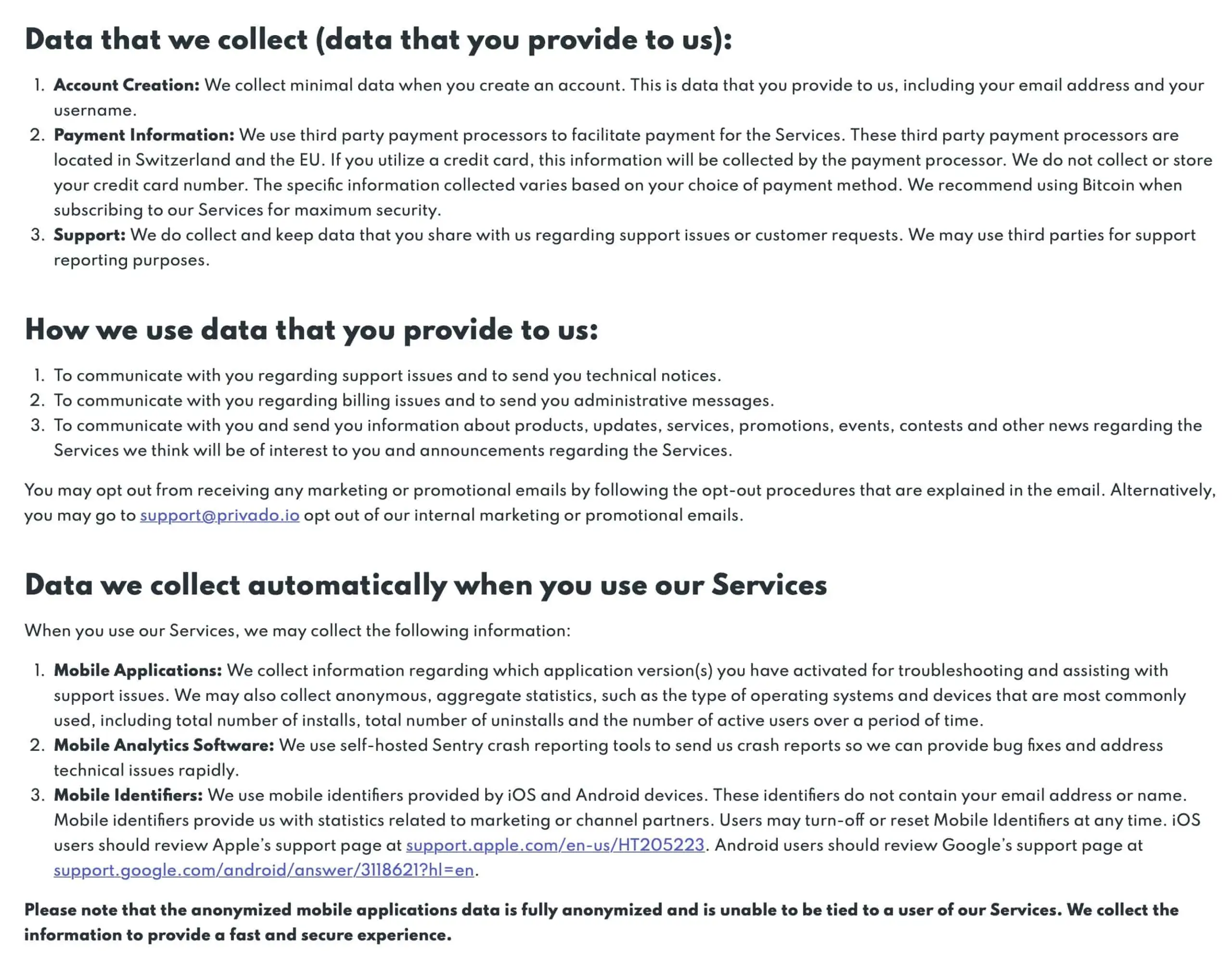
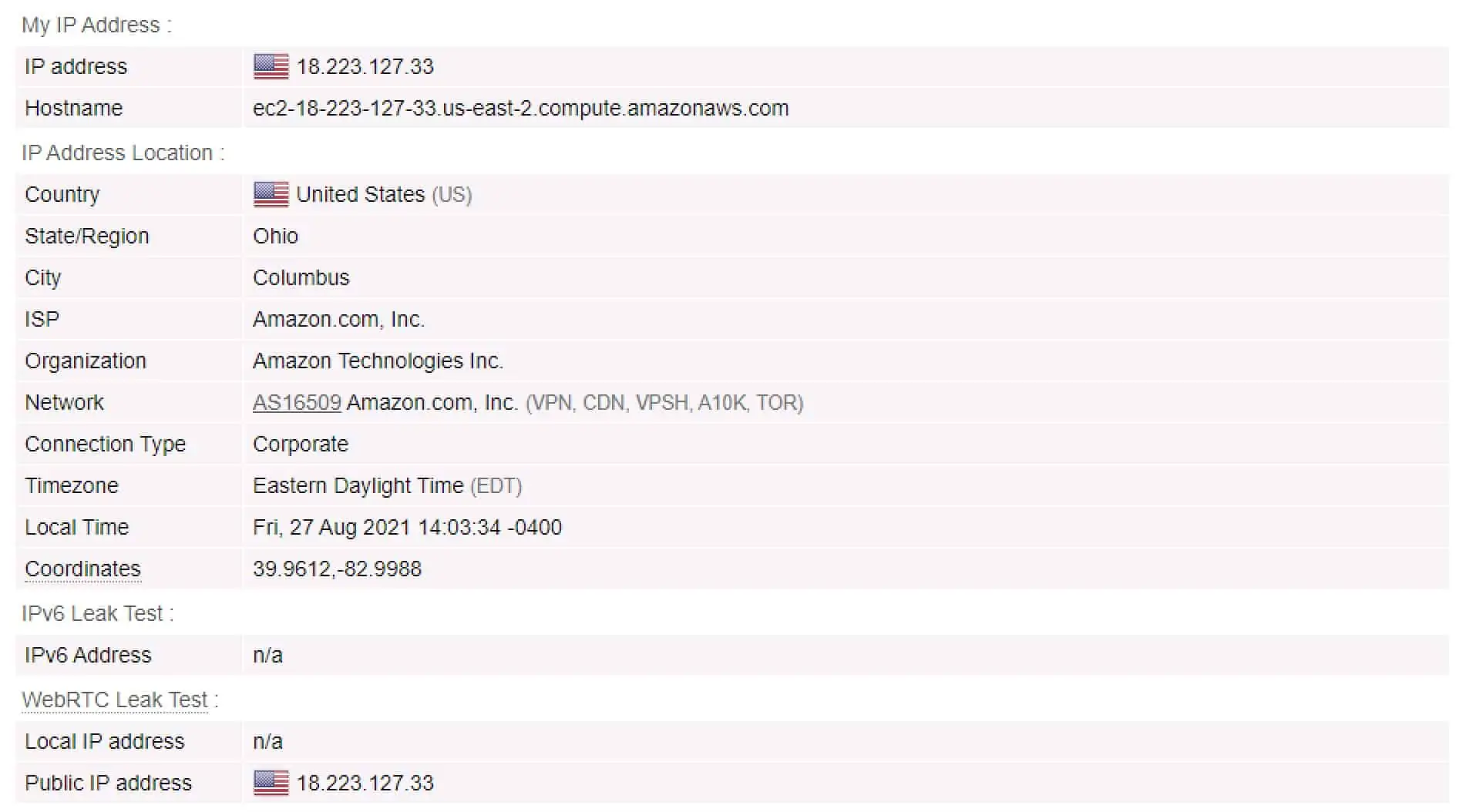
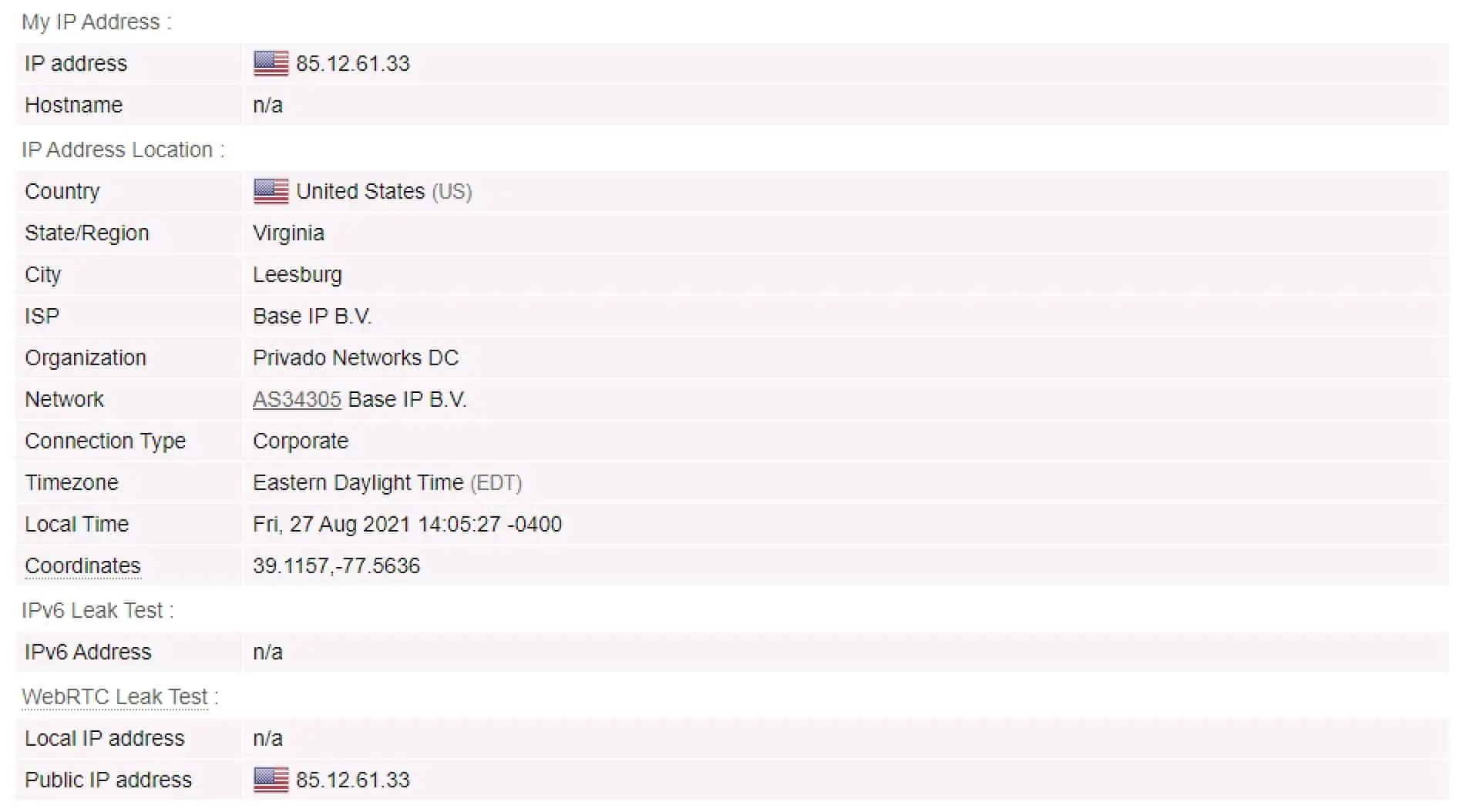


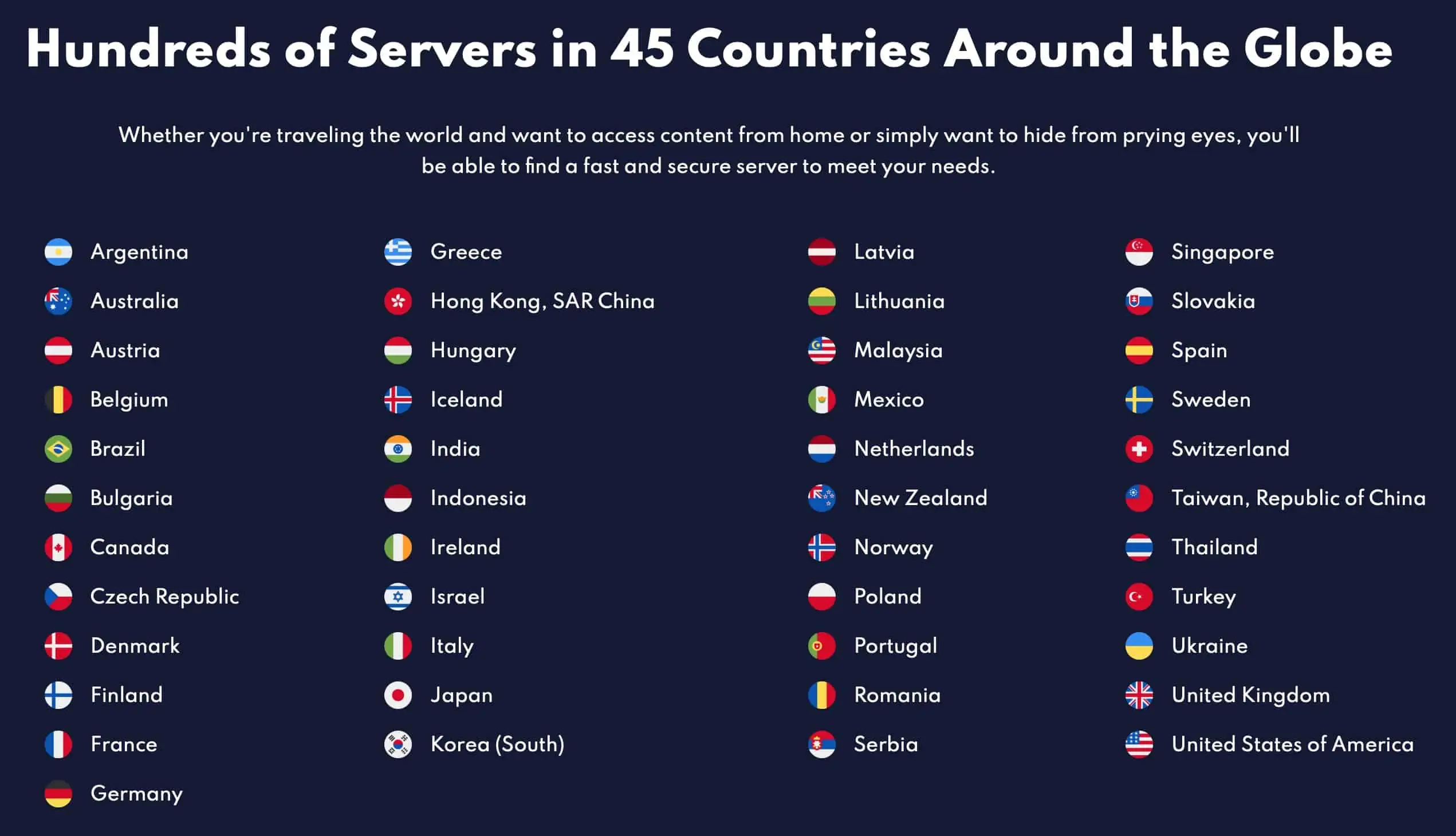

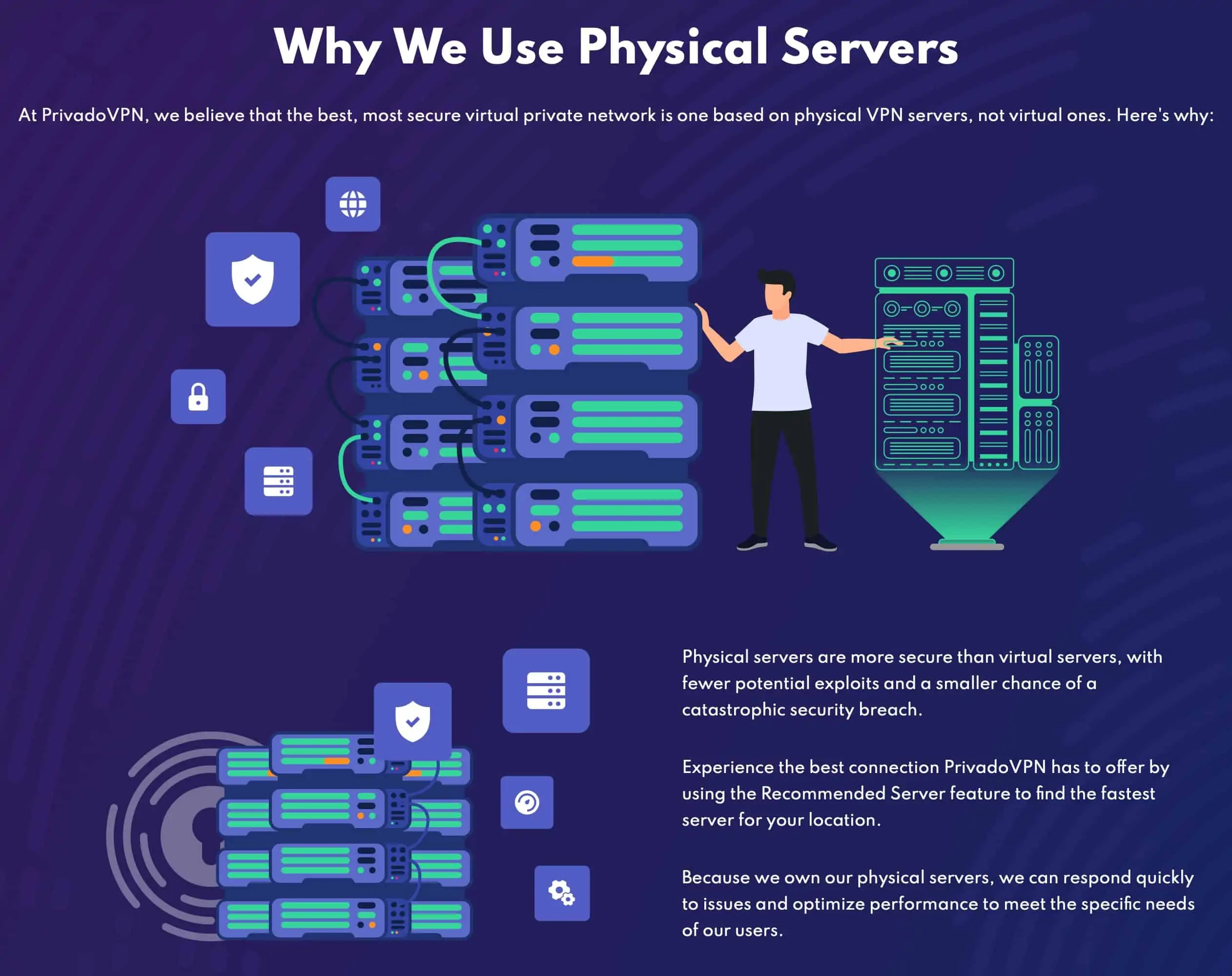


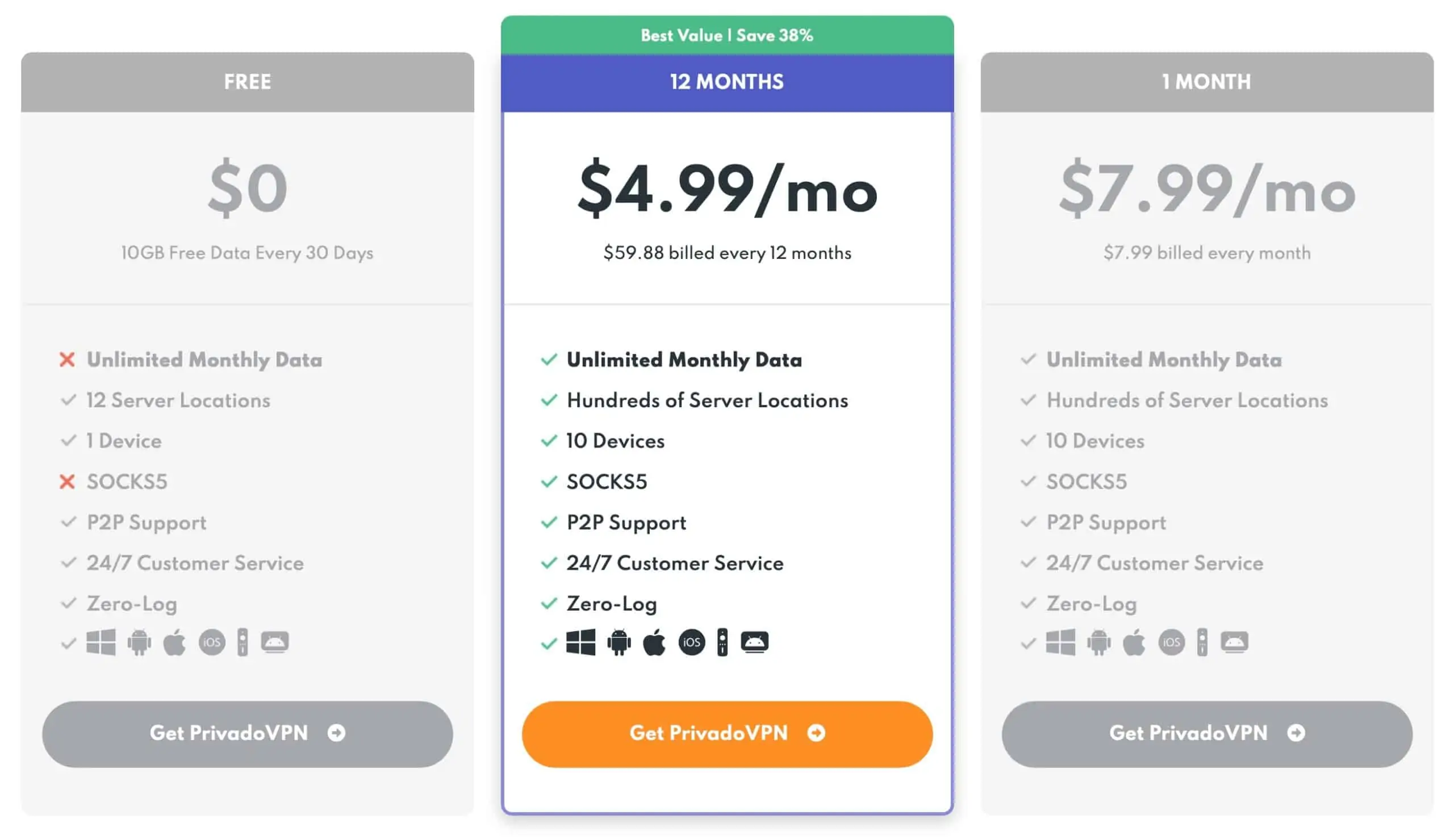
All PrivadoVPN reviews
All Star PrivadoVPN reviews
All PrivadoVPN positive reviews
All PrivadoVPN critical reviews
All related PrivadoVPN reviews
See all reviewsThe above review is a bit dated in some regards, now Privado VPN seems to have a WireGuard option along with OpenVPN and IKEv2, also pricing seems to be adjusted to lower side to attract more customers, and lowest possible price is now (in euros) EUR 1.99 for the two year contract, the cheapest offer I’ve seen while considering VPNs. It is advertised as a “Special Offer!” with a countdown of 30 mins on the homepage, but I’ve used this offer quite a long time ago, and it is still there, with the timer resetting each time you open the website. If you want to have the 12 month contract, the monthly price now set EUR 2.50, which is also quite cheap if you ask me. Also split tunneling iOS is available in the app, with two modes “bypass” when selected apps connect to internet directly, without VPN, or “tunnel” when only selected apps are using VPN, while others connect directly.
The app has/had some issues with battery usage on an Android phone, but if you disable automatic protocol selection and use only IKEv2 (not tried others), the issue is not appearing. Also auto start on Android TV is somewhat slow and not so reliable and not always connecting, but overall for the price I think it is a very solid option.